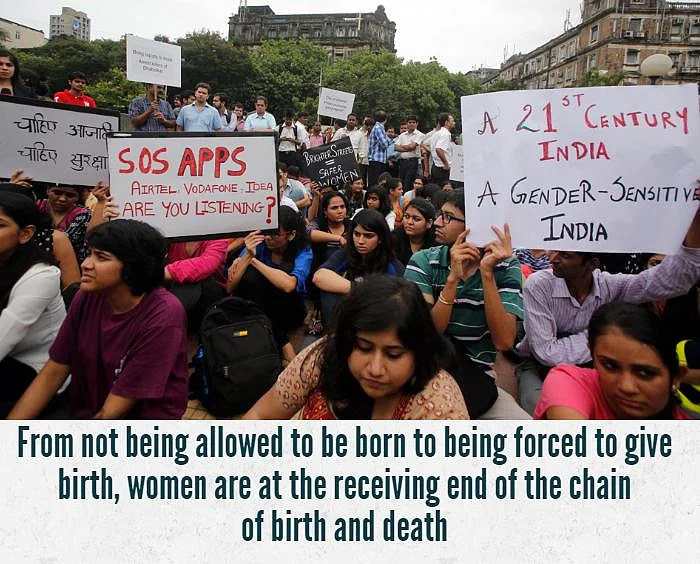- On 3 July, the Supreme Court allowed a 26-week pregnant woman to abort the foetus
The SC order unequivocally holds the right to dignity of life to be of paramount importance - The verdict demonstrates that welfare of people is the fundamental purpose of the courts
Right to Dignity of Life
The Supreme Court has been earning accolades for its progressive judgments on women-centric issues for quite some time now. The latest is allowing a woman from Kolkata to abort her 26-weeks pregnancy.
A medical board of seven doctors from SSKM hospital in Kolkata was constituted on 23 June to look into this matter. Accepting the board’s recommendations submitted on 29 June, a bench of Justice Dipak Misra and M Khanwilkar ruled on 3 July:
Keeping in view the report of the medical board, we are inclined to allow the prayer and direct medical termination of pregnancy of petitioner no 1 (woman).
Through this order, the SC calls to question the very relevance of the Medical Termination of Pregnancy Act,1971 (MTP).
The petitioners in this case, the husband and wife duo seeking abortion on grounds of congenital abnormalities, categorically challenged the constitutional validity of the act
This petition challenges the constitutional validity of section 3(2)(b) of the Medical Termination of Pregnancy Act,1971 (MTP) restricted to the ceiling of 20 weeks stipulated therein. This challenge is to the effect that the 20 week stipulation for a woman to avail of abortion services under section 3(2)(b) may have been reasonable when the section was enacted in 1971 but has ceased to be reasonable today where technology has advanced and it is perfectly safe for a woman to abort even up to the 26th week and thereafter.

This Supreme Court ruling is progressive on multiple counts. While the apex court has recognised the need to update old laws, it has also upheld the woman’s right to make decisions pertaining to child-bearing. The bench has, therefore, reinforced the idea that a woman has sacrosanct right over her bodily integrity. A right, recognised under Article 21 of the Constitution, that seems to lay forgotten amidst growing violence against women.
Unwanted Pregnancies Traumatise
In a similar judgment in 2015, Justices Anil R Dave and Kurian Joseph allowed a minor rape victim to terminate her 25-week pregnancy, subject to medical approval. They, too, demonstrated how the fundamental purpose of courts is welfare of people and not dogmatic interpretation of the word of law.
While arguing for the 14-year-old victim, advocate Kamini Jaiswal had made a pertinent point that forcing the girl to give birth would have immense mental and physical ramifications for her. It might also compel her to take the “extreme step”.
This judgment acknowledged that early detection of pregnancy in child-abuse cases is difficult due to non-disclosure of the child about assault or plain ignorance. Precious time is already lost before the decision to terminate the pregnancy is finally arrived at. The victim, therefore, can not be doubly traumatised by unwanted childbearing.

Whose Life Matters, After All?
In the recent case of a premature delivery at Safdarjung Hospital, another problematic aspect of the MTP Act came into light.
Does a child born prematurely deserve to be called a child or is it still a foetus? After the hospital faced charges of medical negligence, it invoked the MTP Act. In a statement, the Safdarjung Hospital Committee said:
We agree that this is an unfortunate incident. But there is no medical negligence on the part of the hospital. According to the Medical Termination of Pregnancy (MTP) Act, termination of foetus, which is 20 weeks old, is not non-viable. This is more a case of abortion than delivery.
Progressive, Yet Inadequate
The existing Medical Termination of Pregnancy Act, 1971 needs amendments as it is inadequate on multiple counts. While India is miles ahead of places like North Ireland, most of the Latin America, several states in the US, many parts of Africa, in terms of the right to abort, there is immense scope for amendments in the existing laws.
Our progressive outlook pales in comparison to places like Netherlands, where “abortion is permitted virtually on request at any time between implantation and viability if performed by a physician in a (licensed) hospital or clinic”.
(At The Quint, we are answerable only to our audience. Play an active role in shaping our journalism by becoming a member. Because the truth is worth it.)
